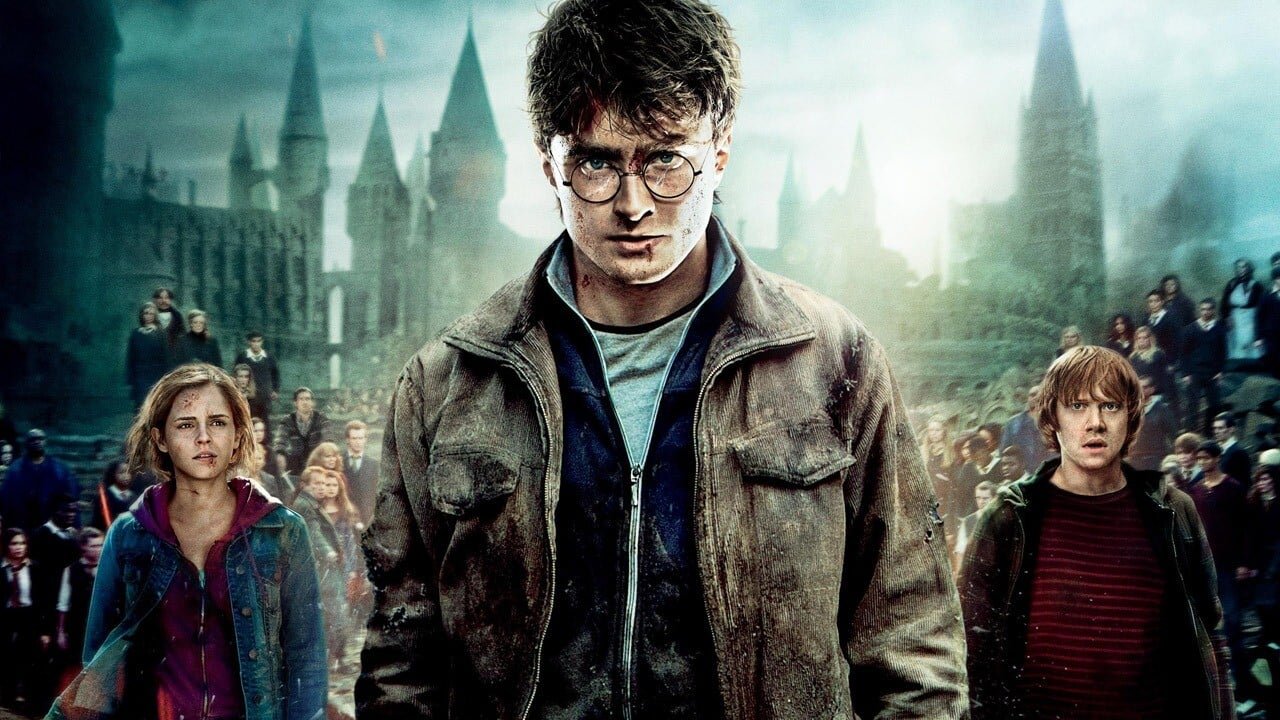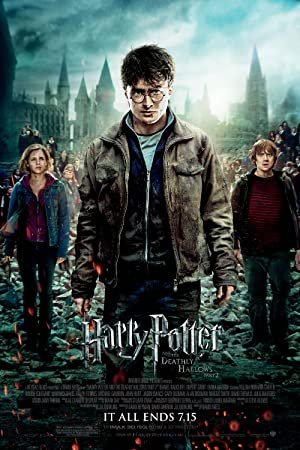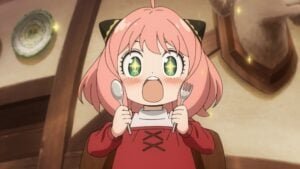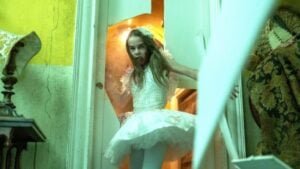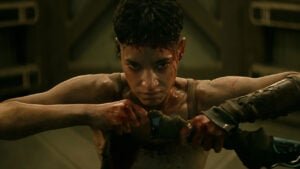Seven movies, one billion and $6 at the box office (and counting) later, the Harry Potter franchise finally comes to an end with an explosive finale that features about as much action as the rest of the series combined.
In fact, this could qualify as one of the biggest action movies of the summer, were it not for the fact that the film will not make sense to anyone who has not already watched the previous seven movies. This is essentially a feature length climax for the franchise, built to generate applause from fans, even though it wraps things up without paying much attention to the rich characterization that defines the series. All the major players get at least one scene, which for most amounts to little more than a cameo, as the movie’s epic plot, which is almost entirely focused on finding Harry, races on. I suppose that’s appropriate, but while the film aims to fill in plot holes and the finale is, of course, one hell of a good vs. evil battle, it ends it with little closure given all that’s come before. The series does go out in appropriately large fashion, so we probably shouldn’t complain. Lord knows unhealthily obsessed fans will be far too busy cheering and crying to nitpick the details.
Good, because that’s my job, damn it.
First things first: if you have not seen a Harry Potter movie before now, you’re going to be lost. It doesn’t spoonfeed the franchise’s information to the audience at this point, so expect to dive into the story midstream. Granted, it shouldn’t take long to figure out that Harry Potter (the guy from the title) is the hero, and the reptilian guy dressed in black leading the dark army is the bad guy, although the dozen other characters jumping in and out of the narrative will be confusing for unfamiliar audiences. Laying out the plot leading up to and including this film would take up the entire review, so let’s just say that the film centers on Harry finally being forced to confront his destiny as the only person capable of stopping the evil Lord Voldemort’s quest for world domination.
That should be enough.
The cast’s incredible work has to be acknowledged. The filmmakers really outdid themselves when they found Daniel Radcliffe, Emma Watson, and Rupert Grint a decade ago, while they were still preteens. Over the last ten years, we’ve been in the unique position of watching them grow up and mature physically and professionally. All three have turned into strong, central actors, and hopefully they’ll be able to venture out into successful solo careers, now that Harry Potter is finally behind them (though after a decade in the international spotlight playing iconic roles, this will not be easy). The veteran cast of theatrically trained British character actors also played a major role in the success of the series, and they all get one final chance to shine. We have Ralph Fiennes, playing the franchise baddie Lord Voldemort, who gets most of the screen time and milks his villainous role with appropriate relish. Everyone from John Hurt, to Helena Bonham Carter and Michael Gambon make a final trek across the screen, though they rarely get a chance to make much of a mark. The two British thespians who do the most are the 76-year-old Maggie Smith, who finally gets to prove herself as an onscreen badass, and Alan Rickman, whose leeringly villainous portrayal of the series’ secondary antagonist Professor Snape gets some much needed motivation in a surprisingly touching late reveal. It’s a pleasure to see this extraordinary cast one last time, even if it would have been nice for each actor to get a more fitting send-off. Admittedly, that would make for a five-hour movie; I said it’d be “nice”, not “practical.”
David Yates returns to the director’s chair once again after the last three films, and does a remarkable job juggling all the action. This is the movie that starts with a bank heist involving midget goblins and a dragon, which sets up a 40-minute wizard war – and that’s not even the climactic battle! It’s a fittingly grandiose end that would greatly appeal to non-Potter movie fans, were it not for all the missed backstory. The climax is a thrilling sendoff designed to spark hoots from the audience, and it will. The technical team behind Harry Potter has been building towards this for a decade, delivering one of the most impressive works of action/fantasy Hollywood has ever produced. As with all of Yates’ film outings, the movie is a slick and efficient, goal-less affair brimming with personality. He’s a workman director serving the franchise, and serves it well. The only other filmmaker to bring his own flavor to the series so strongly was Alfonso Cuaron on Harry Potter And The Prisoner Of Azkaban. That film still stands as the most intriguing, idiosyncratic Harry Potter movie and as a result of historical input, but it also made the least money of any movie in the series and fans were angered because it did not treat the text like gospel. Given the movies’ massive worldwide success, The producers clearly picked well.
The only real problems with Harry Potter And The Deathly Hallows: Part 2 spring from the decision to split the final book into two movies, which was determined to be more financially viable. Nearly all of the character development from JK Rowling’s final novel came in the first part, and both films feel lopsided as a result. Deathly Hallows Part 1 was lacking in action, while Part 2 is lacking in character. It’s not something that kills either movie, but It would have been more satisfying (if less lucrative) to condense the final book Into a single film. Part 2 Is all climax, which is works in terms of pure entertainment but results in the movie (and subsequently the series) lacking closure. Lord Of The Rings: The Return Of The King was mocked for having too many endings; Deathly Hallows Part 2 goes the other way. The story stops just after the final battle, and there’s not much sense given of what will happen to all the characters and the world after the credits roll. There is a little “19 years later” epilogue, which doesn’t answer nearly enough questions, and if anything feels like awkward set up for Harry Potter: The Next Generation.
The final Harry Potter movie might not end with as much closure it deserves, but giving it that level of conclusion would have been practically impossible to achieve. It’s hard to imagine any fan being disappointed by a 2-hour long climax. Looking back on the series as a whole now that it’s finally complete, it’s clear that this series was an incredible filmmaking achievement. No movie franchise ever managed an eight-movie story arc that feels this satisfying. The acting, effects, and storytelling have never wavered. There’s no black mark in the Harry Potter movies; they all work as intended. It’s time for this story to finally end, and it’s hard to imagine another franchise this successful or this strong will come along for quite some time. If JK Rowling’s magical world has tickled your imagination at all over the last ten years, you owe it to yourself to finish the series. This will probably be the biggest moneymaker of the summer, and deservingly so. The Harry Potter movies represent what child-driven blockbuster entertainment should be, and I’m sure Warner Brothers executives will start panicking in the next couple of months when they realize that they do not have another one billion dollar blockbuster guaranteed to come every year.
Oh wait … That Dark Knight sequel is on the way, right? Never mind. They do have another year before the panic sets in.
